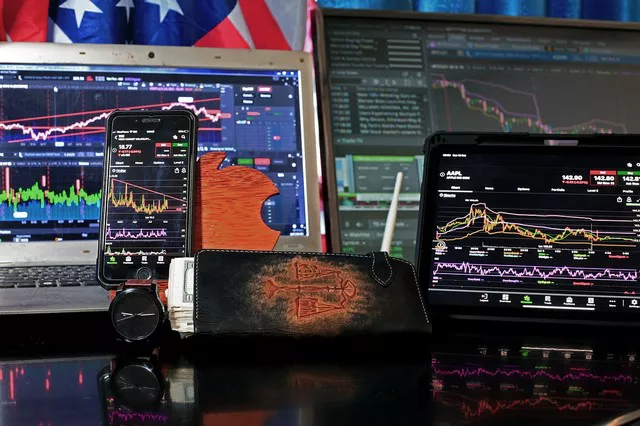Commodity futures trading stands as a cornerstone of the financial markets, providing a platform for participants to engage in speculative activities and manage risk related to various raw materials and resources.
Understanding Commodity Futures Trading
Commodity futures trading revolves around the buying and selling of standardized contracts, known as futures contracts, which obligate the parties involved to transact a specific quantity of a commodity at a predetermined price on a future date. This form of trading serves multiple purposes, including facilitating price discovery, enabling risk management, and providing an avenue for market participants to speculate on future price movements.
Operational Mechanics of Commodity Futures Trading
At the heart of commodity futures trading are the two primary roles: the buyer of the futures contract (long position) and the seller of the futures contract (short position). Participants taking a long position anticipate a price increase in the underlying commodity and commit to purchasing it at a future date. Conversely, those taking a short position predict a price decline and agree to sell the commodity. This duality allows for profit potential in both bullish and bearish market scenarios.
Market Participants in Commodity Futures Trading
Commodity futures trading attracts a diverse array of market participants, each contributing to the market’s liquidity and vibrancy. Producers and consumers of commodities, referred to as hedgers, utilize futures contracts to manage the risk of price fluctuations that could impact their operations or costs. Speculators, on the other hand, are traders who seek to profit from price movements without a direct interest in the physical commodity. Their participation adds depth to the market and enhances price efficiency.
The Role of Commodity Exchanges
Commodity exchanges serve as vital platforms for commodity futures trading, providing the infrastructure and regulatory framework necessary for transparent and efficient trading. These exchanges facilitate the buying and selling of futures contracts, ensuring standardized contract terms, pricing mechanisms, and settlement procedures. Well-known exchanges include the Chicago Mercantile Exchange (CME), New York Mercantile Exchange (NYMEX), and Intercontinental Exchange (ICE).
Clearing and Settlement
Clearing and settlement processes are integral to commodity futures trading. Clearinghouses act as intermediaries between buyers and sellers, guaranteeing the performance of contracts and managing counterparty risk. When a trade is executed, the clearinghouse becomes the counterparty to both sides of the transaction, reducing the risk of default. Upon contract expiration, the settlement process involves the physical delivery of the commodity or a cash settlement based on the contract’s terms.
Leverage and Margin Requirements
Commodity futures trading offers the advantage of leverage, allowing participants to control a larger position with a relatively smaller initial investment. To enter a futures trade, traders are required to deposit an initial margin, a fraction of the contract’s total value. While leverage can amplify potential returns, it also exposes traders to heightened risk. Proper risk management and margin monitoring are crucial to avoid overextending one’s position.
Price Determination and Factors Affecting Commodity Futures
Commodity futures prices are influenced by a multitude of factors, including supply and demand dynamics, geopolitical events, economic indicators, weather conditions, and government policies. Traders and investors closely monitor these variables to make informed trading decisions. Economic data releases, such as agricultural reports and energy inventory numbers, can lead to significant price movements in commodity futures markets.
Strategies in Commodity Futures Trading
Successful commodity futures trading requires a well-defined strategy tailored to individual risk tolerance, investment goals, and market outlook. Some popular strategies include trend following, spread trading, and seasonal trading. Technical analysis, involving the study of price charts and patterns, and fundamental analysis, which examines supply-demand fundamentals, are essential tools for making informed trading decisions.
Benefits and Considerations
Engaging in commodity futures trading offers several potential benefits, including:
1. Diversification: Commodity futures provide exposure to a diverse range of assets beyond traditional stocks and bonds.
2. Risk Management: Hedgers can use futures contracts to mitigate the risk of price fluctuations impacting their operations.
3. Speculative Opportunities: Traders can capitalize on both rising and falling markets, potentially generating profits.
4. Liquidity: Commodity futures markets are often highly liquid, allowing for efficient entry and exit from positions.
5. Global Reach: Commodity futures trading provides access to global markets and exposure to international economic trends.
Conclusion
Commodity futures trading encapsulates a dynamic world where market participants engage in speculating on, and managing the risk associated with, various commodities. Understanding the mechanics, participants, strategies, and factors influencing commodity futures prices empowers traders and investors to make informed decisions in this vibrant arena. By embracing proper risk management, conducting thorough research, and staying attuned to market dynamics, individuals can harness the potential benefits that commodity futures trading offers while navigating its intricacies with prudence and strategic acumen. As with any form of trading, education, discipline, and a comprehensive understanding of the market landscape are essential elements for success in commodity futures trading.


